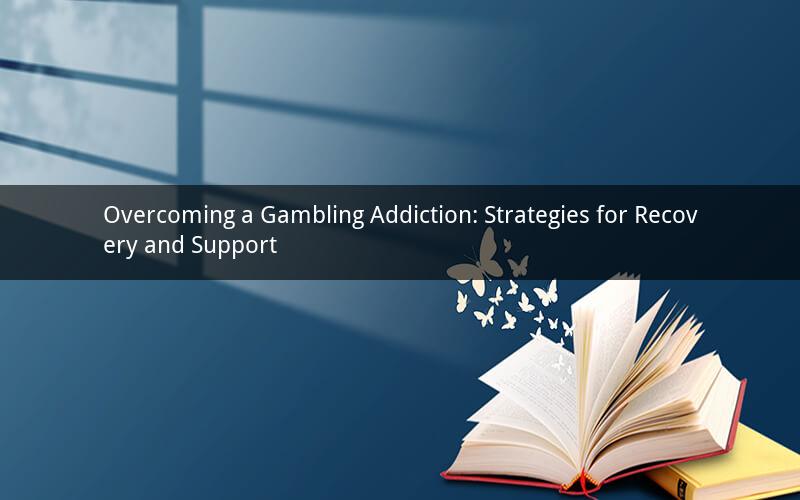
Introduction:
Gambling addiction, also known as gambling disorder, is a serious condition that affects millions of individuals worldwide. It can lead to significant financial, emotional, and social consequences. If you or someone you know is struggling with a gambling addiction, it is crucial to understand the various approaches and resources available for recovery and support. This article explores effective strategies for overcoming a gambling addiction and provides a comprehensive guide to seeking help.
1. Recognizing the Signs of a Gambling Addiction:
Identifying the signs of a gambling addiction is the first step towards overcoming it. Here are some common indicators:
- Preoccupation with gambling, constantly thinking about when you can gamble next
- Needing to gamble with increasing amounts of money to achieve the same thrill
- Feelings of guilt, remorse, or shame after gambling
- Failed attempts to stop gambling or control the amount of time and money spent on it
- Continuing to gamble despite knowing the negative consequences
- Lying to friends, family, or therapists about the extent of your gambling problem
2. Understanding the Causes of a Gambling Addiction:
Understanding the underlying causes of a gambling addiction can help in developing effective strategies for recovery. Some common causes include:
- Genetic predisposition: Research suggests that genetics may play a role in the development of gambling addiction.
- Environmental factors: Exposure to gambling opportunities, such as casinos or online platforms, can increase the risk of developing an addiction.
- Psychological factors: Low self-esteem, boredom, or the need for excitement can contribute to the development of a gambling addiction.
- Social factors: Peer pressure or the desire to fit in with a gambling-oriented social circle can also be influential.
3. Strategies for Overcoming a Gambling Addiction:
a. Acknowledge the Problem:
The first step in overcoming a gambling addiction is to acknowledge that you have a problem. Admitting that you need help is crucial for the recovery process.
b. Seek Professional Help:
Consulting with a mental health professional, such as a therapist or counselor, can provide personalized guidance and support. They can help you develop coping mechanisms and address underlying issues contributing to your addiction.
c. Set Clear Goals:
Set specific, achievable goals to help you regain control over your gambling behavior. These goals may include limiting the amount of money spent on gambling, reducing the frequency of gambling, or attending support group meetings.
d. Create a Support System:
Surround yourself with supportive individuals who understand and care about your recovery journey. This can include friends, family, or support groups dedicated to gambling addiction.
e. Develop Coping Skills:
Learn healthy coping skills to replace the negative feelings associated with gambling. Activities such as exercise, hobbies, and mindfulness can help distract you from the urge to gamble and provide a sense of fulfillment.
f. Avoid Triggers:
Identify and avoid triggers that may lead to relapse, such as visiting casinos, playing online gambling games, or spending time with gambling-oriented friends.
g. Financial Management:
Work on managing your finances to prevent future gambling problems. Consider seeking help from a financial advisor or credit counselor to regain control over your spending habits.
4. Support and Resources for Overcoming a Gambling Addiction:
a. Support Groups:
Support groups, such as Gamblers Anonymous or SMART Recovery, provide a platform for individuals to share their experiences, gain support, and learn from others who have overcome similar challenges.
b. Therapeutic Approaches:
Therapeutic approaches like cognitive-behavioral therapy (CBT), motivational interviewing, and dialectical behavior therapy (DBT) can be effective in treating gambling addiction.
c. Online Resources:
Numerous online resources, including websites, forums, and chat rooms, provide information, support, and guidance for individuals struggling with gambling addiction.
d. Legal Help:
In some cases, legal help may be necessary, especially if financial or legal consequences have arisen from gambling addiction. Consult with an attorney who specializes in gambling-related issues.
5. Frequently Asked Questions:
Q1: How long does it take to overcome a gambling addiction?
A1: The duration of recovery from a gambling addiction varies from person to person. Some individuals may experience immediate relief, while others may require ongoing support and treatment for several years.
Q2: Can a gambling addiction be cured completely?
A2: While a gambling addiction cannot be completely cured, it can be effectively managed and controlled through proper treatment and support.
Q3: Can I recover from a gambling addiction on my own?
A3: While some individuals may find success in overcoming a gambling addiction through self-help methods, seeking professional help and joining support groups can significantly enhance the recovery process.
Q4: Will my loved ones recover from the consequences of my gambling addiction?
A4: Recovery from the consequences of a gambling addiction is a process that involves both the individual and their loved ones. Support from family and friends can greatly contribute to the healing process.
Q5: Can I still enjoy gambling responsibly after overcoming my addiction?
A5: It is possible to enjoy gambling responsibly after overcoming an addiction, but it requires careful self-regulation and the ability to recognize and address any signs of potential relapse.
Conclusion:
Overcoming a gambling addiction is a challenging yet rewarding journey. By recognizing the signs, understanding the causes, and implementing effective strategies for recovery, individuals can regain control over their lives and move towards a healthier, more fulfilling future. Seeking professional help, connecting with support systems, and developing healthy coping skills are crucial steps in the recovery process. Remember, you are not alone in this journey, and there are numerous resources available to help you overcome your gambling addiction.